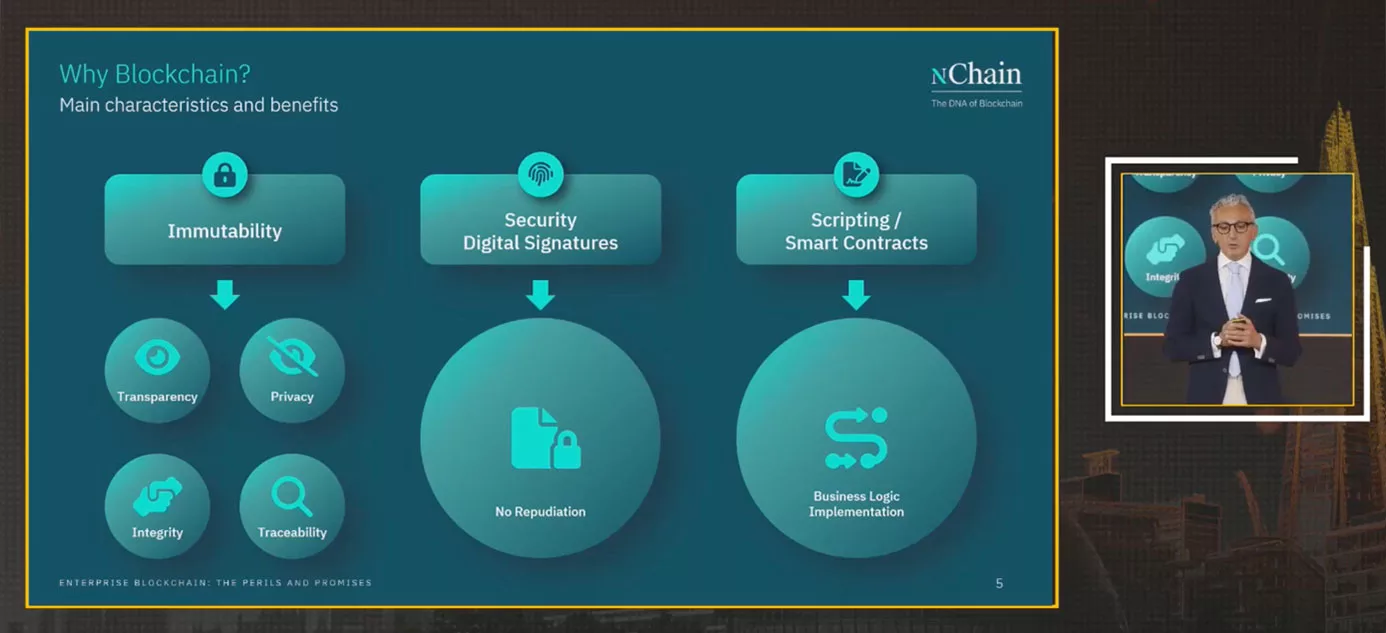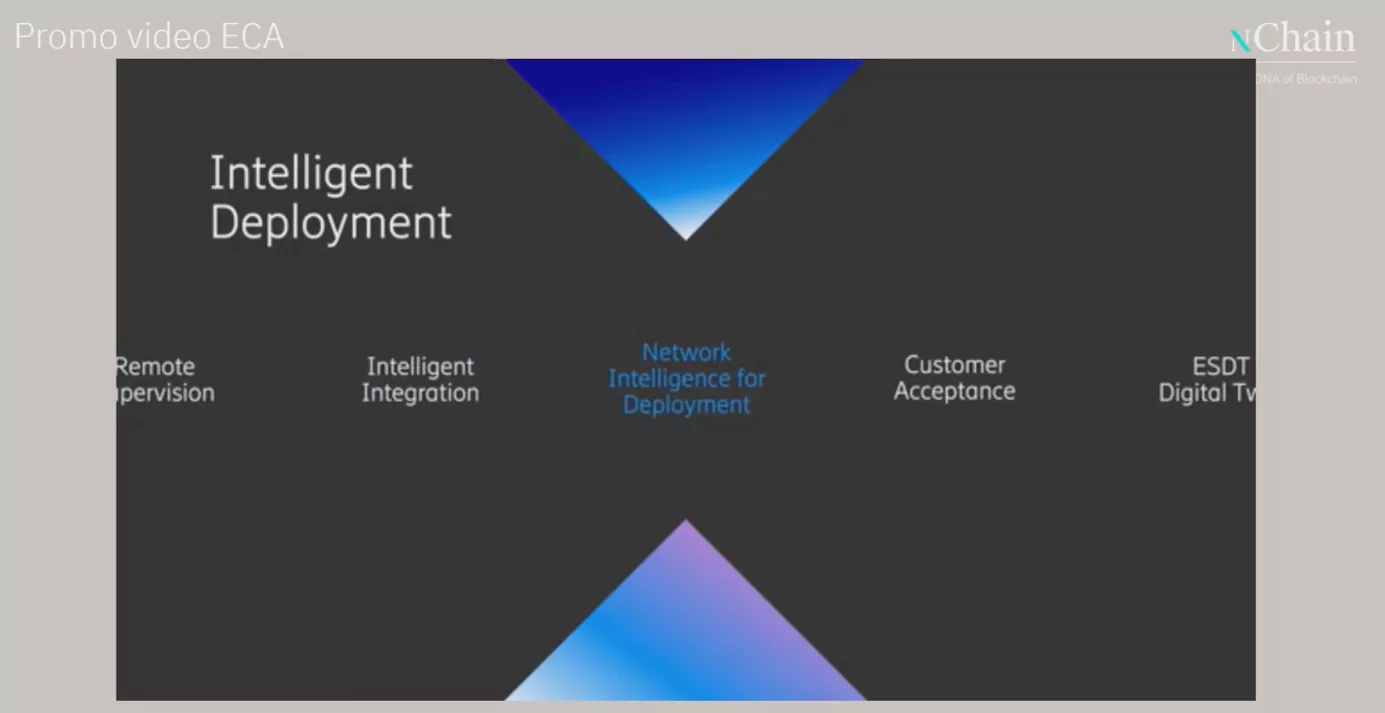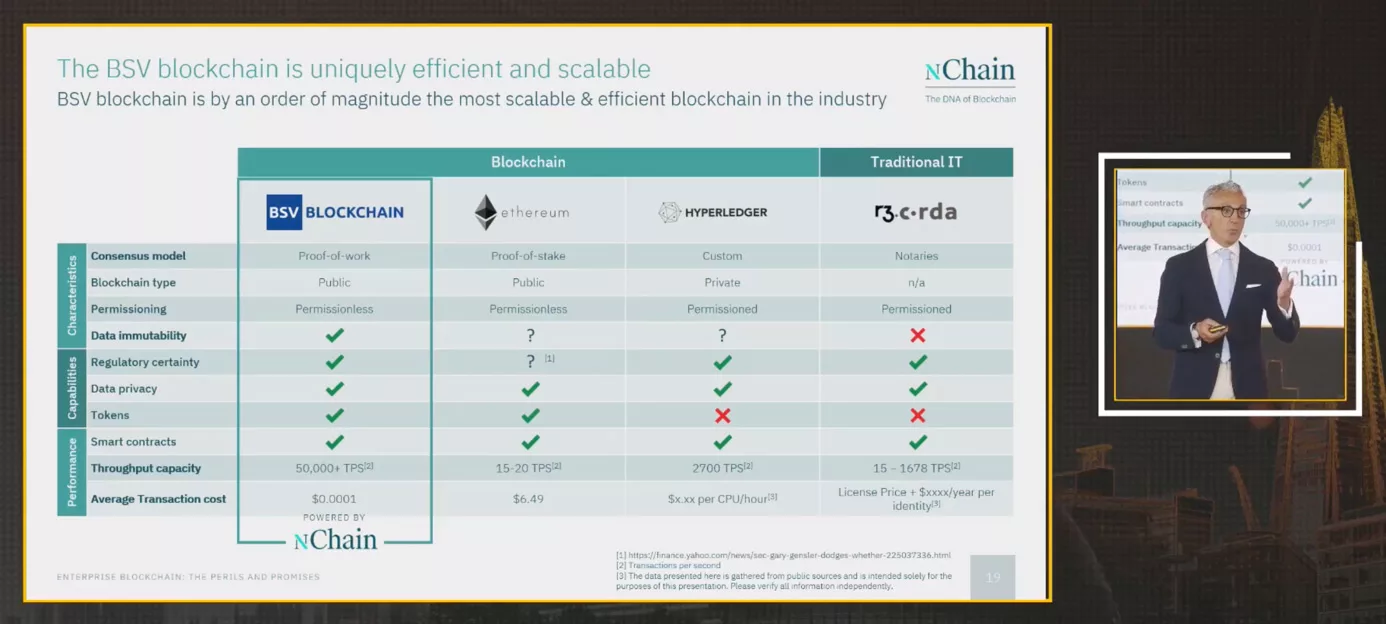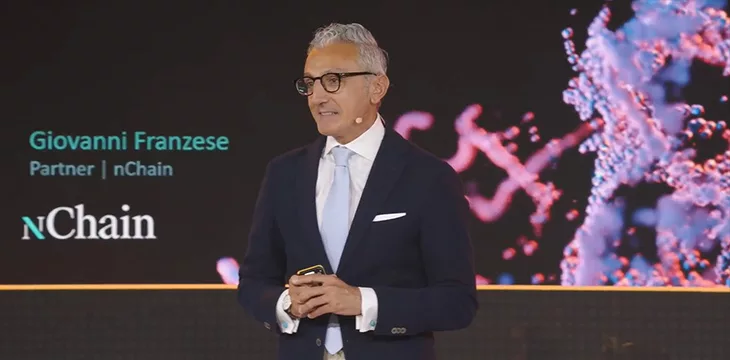|
Getting your Trinity Audio player ready...
|
At the London Blockchain Conference, nChain partner Giovanni Franzese presented the fusion of blockchain and enterprises.
Franzese has spent a good amount of his career at the networking and telecommunication company Ericsson (NASDAQ: ERIC). Nowadays, he is focused on educating corporate environments about the unique capabilities of the BSV blockchain.
“When I started to promote blockchain within Ericsson, like all of us, I was saying transparency. And I remember they said: What? Transparency? We don’t want transparency! This is totally reasonable because in a corporate environment, for sensitive data like finance, you don’t want transparency. You want privacy,” Franzese said.
However, Franzese rightly explained that there is no dichotomy of transparency and privacy to worry about when implementing the BSV blockchain.

The transition from data silos to distributed ledger in corporate environments
Franzese pointed out that enterprises have traditionally started building on so-called “private blockchains,” which are—at the end of the day—simply in-house databases. With the recent developments on the BSV blockchain, Franzese raised the question of whether the corporate approach for “private blockchains” is still worth it.
As nChain is working on the BSV blockchain, Franzese highlighted that Bitcoin as a tool is a distributed database. That is quite the opposite of the “private blockchains” that enterprises have tried in the past years.
“In a client-server mode, for instance, one has to host the backend, which is often the database—where the data resides. This is a main problem because, in a business, there is no trust between the parties. It is business. We don’t have to trust anyone. If we have to trust someone where to put the data, knowing that someone can change and manipulate—then you understand that it is a lack of trust that does not make me feel very comfortable. Blockchain is disruptive because it is a distributed architecture,” Franzese said.
Privacy and transparency concerns regarding blockchain
While Franzese takes the worries of enterprises concerning “too much transparency” or “too little privacy” by using blockchain seriously, he used his presentation to explain that solutions for this are already available.
For example, Bitcoin inventor Dr. Craig Wright in his keynote speech at the London Blockchain Conference, proposes a method to encrypt every single file a user ever touches—not once, but each time one accesses the file. Furthermore, the BSV blockchain automatically becomes more private over time by processing higher amounts of transactions.
“This may sound controversial (…), but this is the beauty of blockchain. This duality of blockchain. You can have both—transparency and privacy; there are techniques. There are things that you can do to keep all characteristics of blockchain and still provide privacy,” Franzese said.
Furthermore, Franzese explained that the built-in security features of the BSV blockchain especially enable no repudiation, which is not a technical but a legal term referring to digital signatures.

Two real use cases of blockchain implementation by Ericsson
Franzese used his stage time to show us how Ericsson has found ways to efficiently manage parts of their data challenges with the blockchain.
For example, Ericsson has a customer acceptance process in which a blockchain application is being used to enable automation in network service deliveries (ECA). By this ECA, Ericsson has created one source of truth and a single point for sign-offs, making it a smoother experience for the company, as well as for the customers.
Franzese commented that this blockchain-driven ECA process had been a huge success, and Ericsson is offering this method to plenty of customers globally.

Furthermore, Ericsson has built another blockchain-powered business process called Letter of Credit, in which banks and clients are connected in a single, trusted digital flow.
Ericsson’s blockchain solution Letter of Credit is a promise by a bank on behalf of the customer to pay Ericsson a specified sum in the agreed currency. All involved parties have real-time access to identical information on the same platform.
Smart contracts and digital signatures secure Ericsson’s Letter of Credit while at the same time enhancing speed, simplicity, and traceability. With this innovation, Ericsson seems to be at the forefront of how to apply blockchain technology in a corporate environment—leading to serious competitive edges.

Franzese encourages enterprises to research BSV blockchain
Thanks to Franzese, Ericsson is already reaping the fruits of easy-to-implement blockchain solutions. From what I can tell, Franzese seems to be passionate about how specifically the BSV blockchain will enable enterprises to operate safer and faster in the digital age—at a very low cost.
“When I started six years ago, I used ‘private blockchain’ platforms. Today, can we do it better? Here we need to compare the status of private blockchain against public blockchain. My drivers in the past were to have a faster network, a cheaper network, and a scalable network. Where are we at today? Well (…) Ethereum is still 20 transactions per second (…) but with BSV blockchain it is 50,000 transactions per second,” Franzese said.
Currently, Franzese and his partners at nChain are assisting enterprises in switching from private blockchains and private databases to the public BSV blockchain.

Watch: London Blockchain Conference Day 2 Highlights: Reducing risk & improving trust with blockchain

 03-02-2026
03-02-2026 




